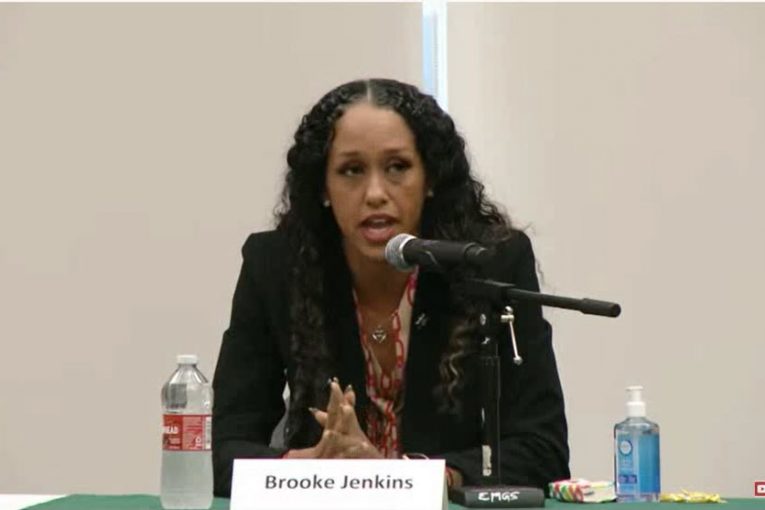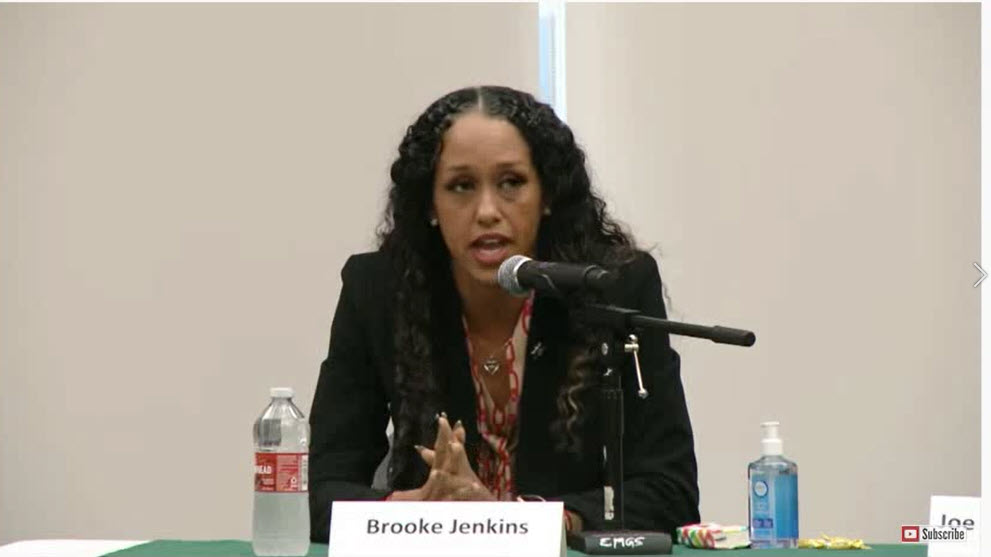

by Robert J. Hansen
The attorney for a defendant accused of killing a man in 2020, moved to disqualify the San Francisco County District Attorney’s Office last week because District Attorney Brooke Jenkins’ personal bias and political motivations have undermined her ability to prosecute this matter fairly and have permeated her entire office.
Pamela Herzig and her defendant, Stevie Mitchell, are requesting that this matter be referred to the Attorney General’s Office to determine whether this prosecution can proceed.
“The only remedy is to disqualify the San Francisco District Attorney’s Office and refer this matter to the Attorney General’s Office,” Herzig said in her motion.
A prosecutor must be disqualified where it is shown that an actual or apparent conflict of interest makes it unlikely that the defendant will receive fair treatment during all portions of the criminal proceedings, according to California law.
Allegedly, on July 5, 2020, Mitchell was a passenger in a vehicle with Sincere Pomar, and two minors, when Mitchell and Pomar shot and killed 18-year-old Jerome Mallory Jr., who was walking on a street in San Francisco.
Mallory was a first cousin to DA Jenkins, who at the time was an assistant district attorney assigned to the homicide unit.
She notified the managing attorney of the homicide unit, David Merrin, of the conflict of interest in an email the day after the killing.
“I was informed by my husband this morning that one of his cousins was shot and killed in Hunter’s Point yesterday/last night,” Jenkins said. “This is a cousin that I know from being at many family gatherings together over the years. That’s the only information that I have and assume it’s true given what he’s been told. His cousin’s name is Jerome Mallory, Jr., I wanted to let you know so that I can appropriately be walled off [from] any investigation and also in the event someone is eventually arrested and charged, that you know not to assign the case to me.”
Merrin responded, “If and when an arrest was made, you will be walled off. I will advise Beth to be sure you cannot access the file.”
To date, the prosecution has provided no indication that their office or Ms. Jenkins made any attempt to “wall off” Ms. Jenkins from the investigating officers, including the officers who swore out the arrest warrants for Pomar, Mitchell, and the two minors charged in this case.
Herzig asserts that Jenkins should have been barred from obtaining information about the case, including discussing the investigation, arrest, and prosecution with her then-colleagues (now deputies) and SFPD homicide inspectors; also, she should have been electronically prohibited from accessing the case file.
Mr. Merrin simply declined to assign the case to her and made sure to not discuss any confidential information with her or involve her in any charging decisions.
Herzig claims that DA Jenkins discussed the case with SFPD inspectors Gordon and Delaney.
“It appears that she availed herself of records and reports to gain additional information about the case and people connected to it,” Herzig wrote.
Merrin said he spoke with Sgt. Phillip Gordon who told him that the allegation was not true. Sgt. Gordon also stated that there were not any emails between Ms. Jenkins and himself about the case, according to Merrin.
When Jenkins resigned from the SF DA’s Office in October 2021, she told the SF Chronicle some of her thoughts on her cousin’s murder case while campaigning for the recall of former SF District Attorney Chesa Boudin.
Jenkins said Boudin is resistant to filing felony charges of gang conspiracy which she wanted to be filed against Mallory’s alleged killers, seeing them as the only way for prosecutors to make a case.
She said there are some cases in which the only way forward is to file gang charges and doubts the case will hold up in court.
“This conflict of interest will continue to hinder Mr. Mitchell from receiving fair treatment during all portions of the criminal proceedings,” Herzig wrote.
Jenkins’ efforts to recall Chesa Boudin via her interest in the case against Mitchell eliminated any protections by erecting an ethical wall after she was sworn into office, Herzig argues.
Jenkins was appointed San Francisco’s district attorney last July.
Once appointed as District Attorney, Jenkins did refer the matter to the Attorney General’s Office for possible prosecution.
Attached General Rob Bonta declined to accept the matter but his written response made clear that Jenkins failed to advise him of the many published statements she made regarding the case during the eight months she was not employed by the office and instead actively campaigning for the Recall Campaign.
Bonta’s comments on whether Jenkins had been properly walled off relied on her assertion that she “provided a detailed accounting of those walling off procedures to the court and provided discovery of those procedures to defense counsel.”
That is simply not true, according to Herzig.
“No deputy can be expected to even-handedly prosecute the case without worrying that the decision he makes will please his boss; further, failure to obtain maximum punishment despite any issues that may arise as to the quality of evidence or mitigation would displease her and affect his standing in the office and his professional future,” Herzig writes.
Jenkins was not able to be reached for comment.

